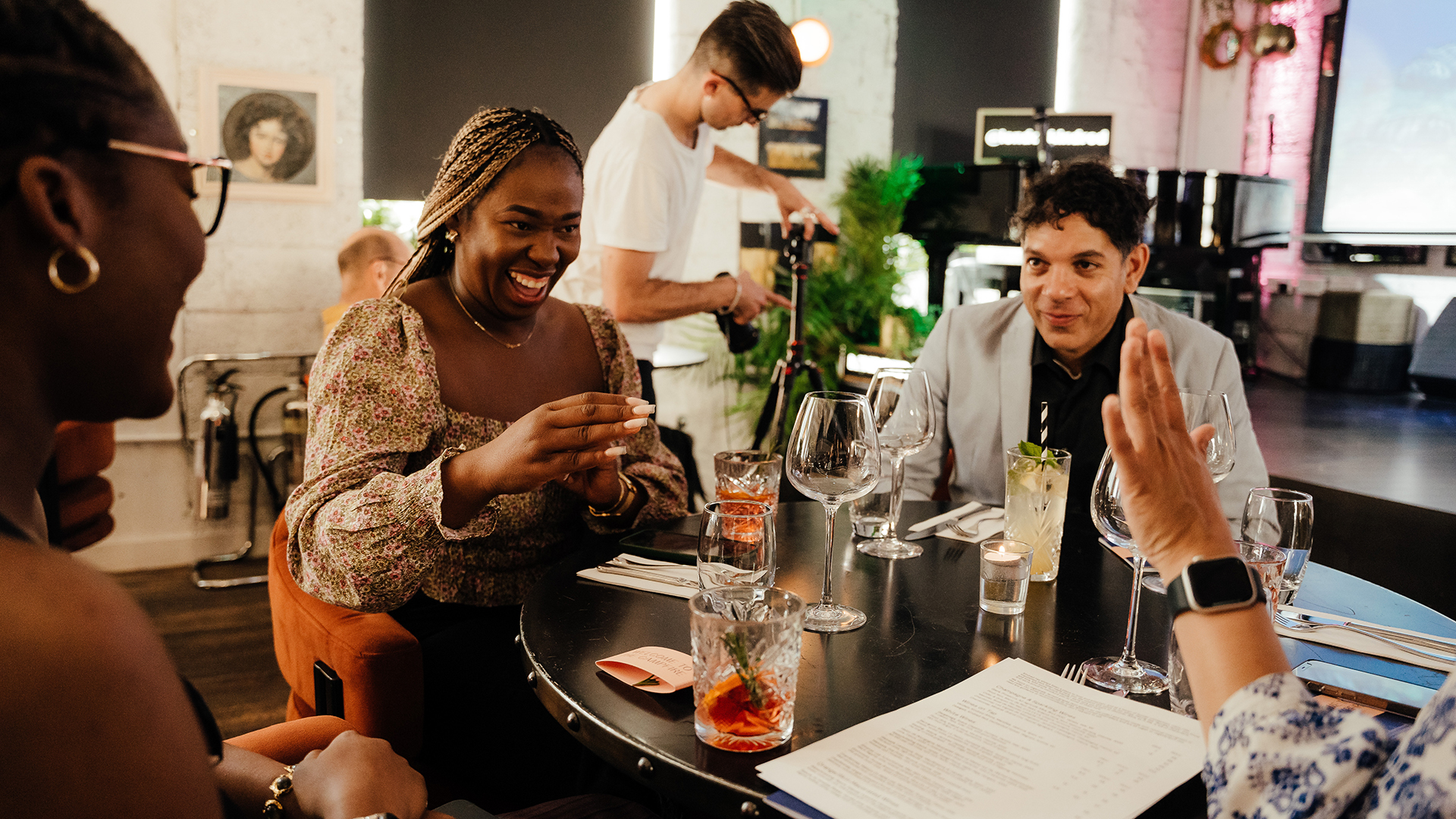From being happier to feeling more supported, the benefits of community are wide-ranging and well established. For example, we know that social isolation and loneliness can be as damaging to our health as smoking.
But how do you go about actually building a community? How do you find your people and form connections with them?
In today’s world, that can feel much easier said than done. However, while it’s true that finding a community takes effort, it’s by no means impossible. At Kindred, we see it happening in our building every day.
Here’s how you can get started.
How do you build a community?
It’s the million-dollar question: how do you build a community for yourself in 2025? There’s no single answer. But there are some fundamental steps you can take to get you on the right path.
What is a community?
First, it’s important to understand what makes a community.
There’s a few different ways you could define community. Loosely, it’s a group of people that are tied together in some way, be it through their geography (like if you live in the same neighbourhood) or a shared identity. You could also just be a group who share similar interests or are linked by social ties, like a friend group or extended family.
When people talk about building their own community, they usually mean having a network of people they can rely on and hang out with socially.
What all communities have in common, though, is a sense of belonging. So, we’d suggest starting by asking yourself: what’s the common thread that will tie my community together?
The building blocks of community
How do you create a sense of belonging? First, there needs to be some kind of reason for you all to connect and come together. It might be a shared interest, like rowing or comedy, or something you have in common, like being new parents.
People want to be part of groups that share their values. Values can be communicated in a bunch of different ways: what activities you do together, how people treat each other, who is welcomed within the group, etc. Essentially, people are looking for others who are like them.
But, according to author and community expert Charles H. Vogl, what turns a group of people into a community is a mutual concern for each other’s welfare. In his book, The Art of Building Community: Seven Principles for Belonging, he writes:
“We have communities in our lives that don’t have formal membership but to which we feel connected because of this perceived mutual concern: the neighbors on your street or in your apartment building, your pickup sports friends, or even the people you know from your commute. Though informal, these are real and important communities.”
This sense of being seen by others builds up when people feel they can relate to each other. And it strengthens as you become more familiar and spend more time together.
Find your people
Okay, but how do you find these people who have the same values as you, and who want to be in your community?
Most of the time, you have to physically go out and look for them. For example:
- Hosting events or meetups
- Volunteer for a cause that’s important to you
- Join a club
- Become a regular at an institution near you, like the gym
- Do a course
- Try an app to meet people
- Attend events designed to bring people together (like the ones we run at Kindred!)
We know that putting yourself out there might feel a little nerve wracking. But if you want to meet new people, we’re afraid there’s no way around it. We’ve given some more in-depth advice on making new friends here.
The environment you’re in plays a role here, too. We’d suggest going for situations where meeting new people feels natural. For instance, if you’re volunteering, you would organically interact and work alongside people who also believe in the same cause. This can make it easier to strike up a conversation and alleviate any awkwardness you might feel.
Form rituals
Humans have been performing rituals together—activities we perform repeatedly that have meaning—for centuries. While the word “rituals” might make you think of ancient or religious practices, it can be anything as simple as grabbing a coffee together at the end of each meetup.
It’s the consistency of these shared activities that bring people together. For instance, at Kindred we host a coffee social every day at 11am for our coworkers. Everyone discusses their goals and challenges for the week—as well as having a general catch-up.
By creating a shared experience, this simple ritual generates a sense of belonging. It provides a reason for people to connect and come together. And people really enjoy it, so they keep coming back!
Show up, be patient
You know the saying, “Rome wasn’t built in a day?” Well, the same goes for human relationships. They take time to build and strengthen.
And in the meantime, you have to keep showing up. Attend meetups regularly and make an effort to get to know people, approaching each conversation with an open mind.
The more familiar you become with people, and the more experiences you share, you’ll start to feel more connected to them. Trust us on this one!
The power of community
We humans are social creatures; we’re not meant to be living in isolation from each other. Yet research shows that we’re lonelier than ever.
According to the Campaign to End Loneliness, just under half of UK adults report feeling lonely occasionally, often, or always. Around 7% of people experience chronic loneliness, which has risen from 6% in 2020.
Building social ties can make us feel happier and safer, improve our mental health, and give us social support. It can boost our physical health, too: we could feel less stressed and anxious, and more motivated to take better care of ourselves. We might feel more optimistic about the world and treat ourselves with more kindness.
Find your city community at Kindred
We created Kindred so that Londoners would have a space to connect and come together in person. There really is no substitute for spending time with people in real life: it’s something that can’t be replicated online.
Yet we know that forming new connections isn’t easy. Between the demands of modern life—work, family and caring responsibilities, self-care—it’s easy to understand the appeal of online socialising instead. It’s simpler and requires less effort.
But social skills are like a muscle: you have to practice to keep them up. And once you fall out of the habit, it can feel overwhelming or even scary to pick it back up.
That’s where we come in. Everything about Kindred is geared towards getting people to connect. We do the work to make this feel breezy—and, dare we say, joyful—by creating a warm and friendly atmosphere, facilitating introductions, and hosting events designed to bring people together.
This June, we’re hosting our annual TogethernessFest. It’s a programme of dinners, walks, talks, and workshops aimed at fostering connection.
Here at Kindred: we make friends. And you’re cordially invited to join us. We hope we’ll see you there.




